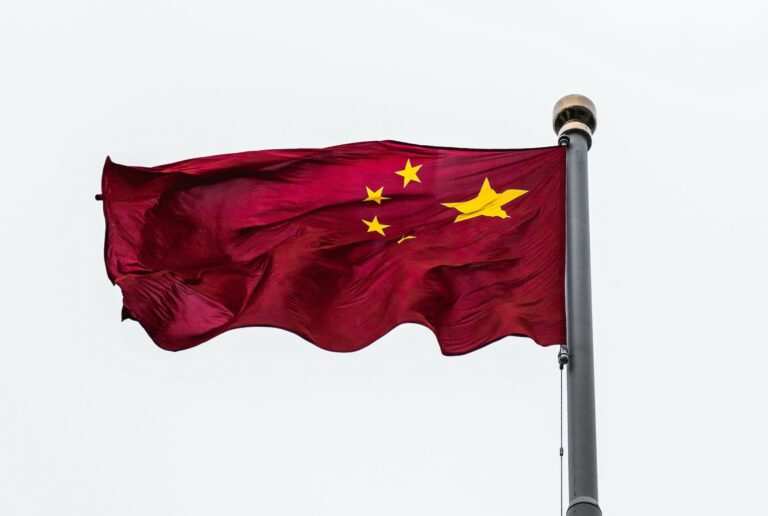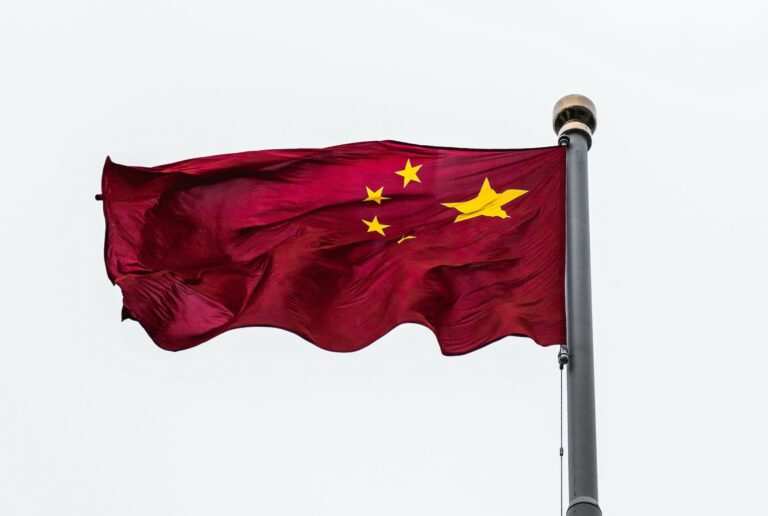
This article was originally published by Radio Free Asia and is reprinted with permission.
Three Taiwanese nationals have been detained by authorities in the southern Chinese province of Guangdong in connection with religious activities linked to the I-Kuan Tao spiritual movement, which is banned by the Chinese Communist Party, a Taiwanese official confirmed on Wednesday.
Three followers of the I-Kuan Tao movement, all of whom are in their seventies, were detained in a raid on a scripture-reading gathering at a private residence in Zhongshan city, Lo Wen-jia, who heads Taiwan’s semi-official Straits Exchange Foundation, told reporters in Taipei.
“Around Oct. 10 this year, police suddenly entered a private residence in Zhongshan, China to arrest the people inside,” Lo said. “The number of people who were present is unclear.”
“Three of them are elderly I-Kuan Tao followers from Taiwan, in their 70s,” he said. “They were reading I-Kuan Tao scriptures with local people.”
I-Kuan Tao, meaning the Consistent Way, is a Chinese salvationist religious group that emerged in China during the late 19th century, rising to the height of its popularity during the Japanese occupation of World War II.
It was designated an “illegal secret society and heretical cult” by the Chinese Communist Party in 1949, but has flourished in Taiwan since the ending of martial law and an official apology for previous persecution from the authoritarian Kuomintang regime under Chiang Ching-kuo in 1987.
Lo said the Foundation had reached out to its Chinese counterpart, the Association for Relations Across the Taiwan Straits and Chinese law enforcement officials in the hope of gaining their support and assistance, but had received no reply.
He said the Foundation is exploring other channels to find out more about the detainees’ status, and providing legal support to their families.
Chiu Chui-cheng, head of the government’s Mainland Affairs Council said the detentions have further highlighted growing risks for Taiwanese nationals who travel to China, and that the government currently advises “heightened caution.”
Risk hotline
The announcement came as the Council launched a risk assessment hotline for people thinking of traveling to China, warning that the island’s nationals continue to be detained, interrogated or disappear there in large numbers.
Visits by Taiwanese to Hong Kong and Macau between January and October that were voluntarily reported to the Taiwanese government’s online records rose five-fold compared with the same period in 2012, while visits to mainland China rose 14-fold, the Council said.
“The Chinese Communist Party has continued to revise its national security laws in recent years, there have been quite a few cases where our nationals traveling to mainland China, Hong Kong and Macau have been illegally detained and interrogated,” the Council said in a statement on Dec. 2.
It said a recent decree from Beijing that it would pursue supporters of independence for Taiwan, threatening them with the death penalty, had increased the risks still further.
“Careful assessment should be made before proceeding and non-essential travel should be avoided,” the statement said, encouraging Taiwanese who do go to China to log their trip, to make it easier for their government to render assistance if something goes wrong.
China warned in June that supporters of independence for Taiwan could be tried in absentia and sentenced to death for “splitting the country,” in a move designed to step up pressure on the democratic island to move toward acceptance of rule by Beijing.
Taiwan has never been ruled by Beijing, nor formed part of the People’s Republic of China, and is formally governed by the Republic of China government formed after the 1911 fall of the Qing Dynasty under Sun Yat-sen, that later fled to Taipei after losing the civil war to Mao Zedong’s communists on the mainland.
While China insists on eventual “unification” with Taiwan, by armed invasion if necessary, the majority of Taiwan’s 23 million people have no wish to give up their democratic way of life to submit to Chinese rule.
Taiwanese President Lai Ching-te has dismissed Beijing’s warnings, saying China has no power to prosecute people on the island.
‘It’s China’s loss’
Lo said the three I-Kuan Tao followers may have been detained under Article 300 of the Criminal Law of the People’s Republic of China, which stipulates that those who organize and use “secret societies, cults or superstitions” to undermine law enforcement could receive anything between a fine and life imprisonment, depending on the seriousness of the offense.
Huang Te-sheng, secretary-general of Taiwan’s I-Kuan Tao Association said there are no channels that the organization can use to contact the authorities in China, and that it would rely on the Foundation and the Taiwanese government for assistance.
He said that while the Association “doesn’t encourage” missionary work in China, it had no power to bar its followers from traveling there.
An I-Kuan Tao follower who declined to be named told RFA Mandarin that many believers are keen to bring their religion back to China.
“It’s really unacceptable [for them to be targeted like this], in the absence of illegal or disorderly behavior,” the person said, adding: “It’s China’s loss.”
Ruling Democratic Progressive Party lawmaker Chang Hung-lu said the organization should warn its followers, many of whom are elderly, of the dangers of carrying out religious activities in China under Xi Jinping, whose “sinicization” of religion policy requires all religious groups to show loyalty to the Chinese Communist Party.
“There are two million followers of I-Kuan Tao in Taiwan, who risk being searched for scriptures as soon as they enter China,” Chang said. “We need to do a better job of warning I-Kuan Tao followers, as many of them are elderly and unaware [of the risks].”
“We also need to help those three people to the best of our ability,” he said.
American Military News Rephrased By: InfoArmed
